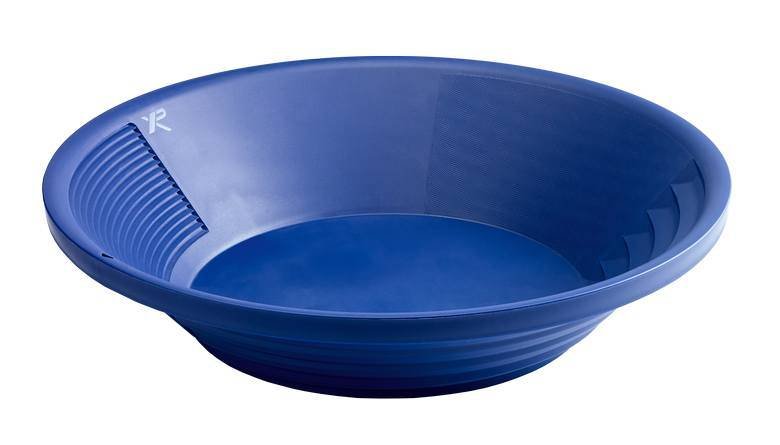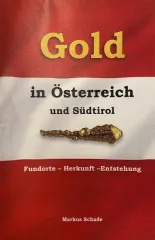Gold panning, one of the last adventures of our time
Gold panning and gold mining in Germany has a very long tradition. However, there was no real "gold rush" in Germany, such as in the Yukon. Panning for gold in rivers and waterways or digging for gold in underground mines was hard work. Very few gold prospectors were able to make a living from it. The fascination of gold panning today lies in the mixture of being in nature and experiencing nature.
Gold deposits in Germany
Where are the most rewarding places to pan for gold?
Bavaria, Baden-Württemberg, Thuringia, Saxony, Hesse, Rhineland-Palatinate and North Rhine-Westphalia have proven gold deposits. There are many gold-bearing rivers in Germany, the most important of which are briefly listed in the respective federal states.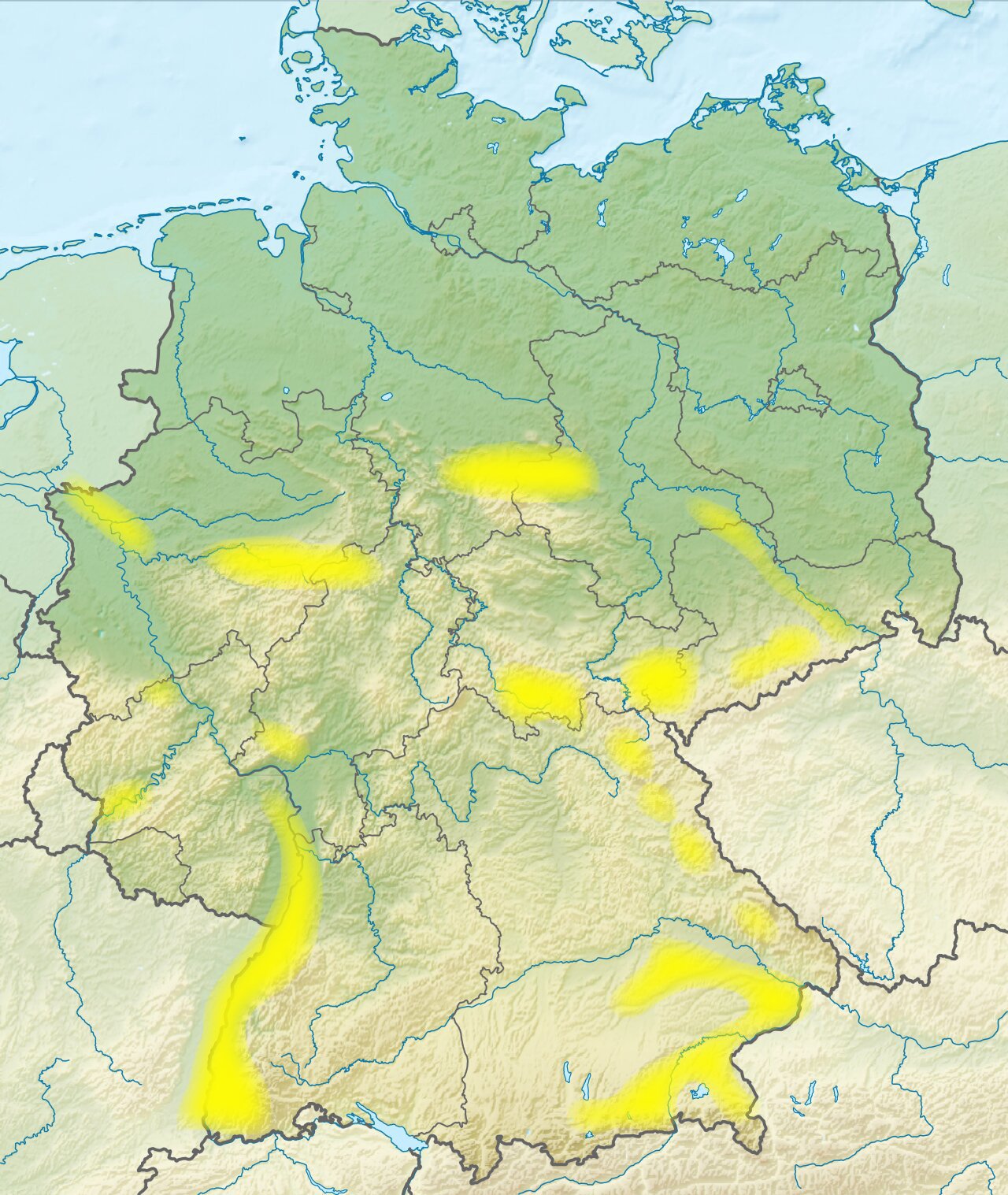 Bavaria: Danube, Salzach, Alz, Windach, Ammer, Amper, as well as Inn and Isar
Bavaria: Danube, Salzach, Alz, Windach, Ammer, Amper, as well as Inn and Isar
Thuringia: Schwarza, Saale, Weiße Elster, Weida, Werra, Schleuse, Grümpen, Itz, Steinach, Rodach, Haßlach, Loquitz
Saxony-Anhalt: Aller
Lower Saxony: Wietze
Hesse: Eder
Saxony: Elbe, Göltzsch, Striegis
Baden Württemberg: Rhine
How do you get hold of the coveted gold?
In Germany, river gold is usually washed out of the sediment using a gold washing pan and a washing channel.
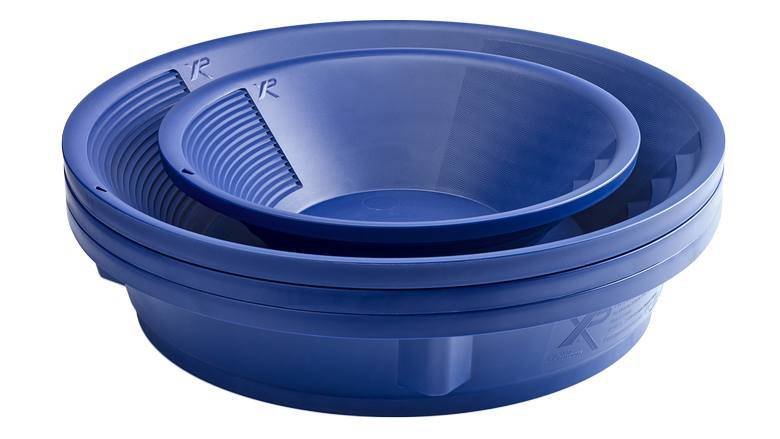
XP gold panning 10-piece professional set - Our gold panning set contains everything you need to get started
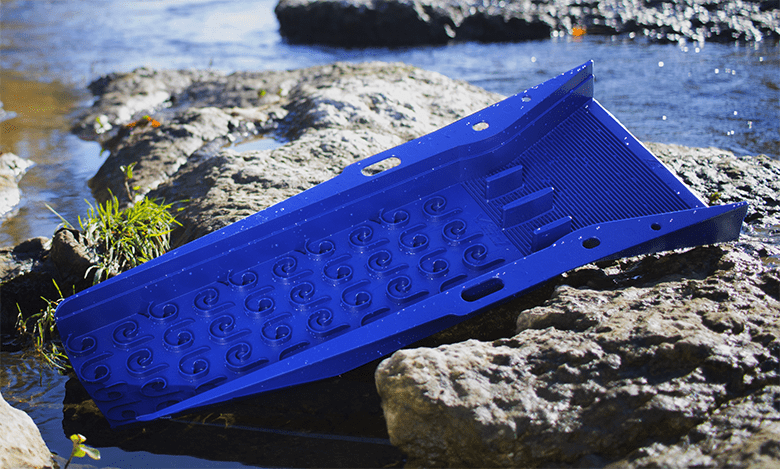
XP gold panning trough VS1 - 40 vortices work together to filter out gold through an innovative dynamic process.
Where can I find gold in the stream/river?
Gold has a specific weight of 19.3 g per cm³. Every obstacle in the river reduces the flow speed of the water, causing the heavy gold to sink. Gold flakes do not collect in fine river sand. They collect in places with coarse stones. If you wash the sand and gravel mixture several times, you will obtain a fine sandy concentrate. The separation of gold and deaf rock is done exclusively by weight. Light material must always be separated from heavy material during the washing process.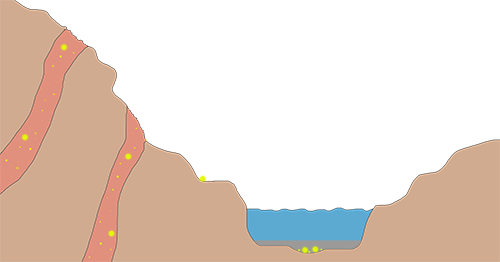
A gold vein that breaks out on the surface is slowly destroyed by erosion. The remains can be deposited in the vicinity of the vein to form initial accumulations before they have even reached a stream or river bed.

At river bends, material is removed from the baffle slope where the current is strongest. It is deposited on the opposite slope where the current is slower. This is where the coveted gold is found.

Waterfalls, cracks and eddy holes at the bottom of river and stream beds form regular folds in which the heavy gold can easily accumulate.
Checklist for gold panning
There are a few things to bear in mind to make gold panning fun and successful:- Use the right equipment: Backpack,shovel, sieve, wash pan, gutter, small hand shovel, sniffer bottle, collection jaretc.
- Make sure you find out where and when gold panning is permitted before you set off.
- Rubber boots including warm socks are essential when panning for gold in or near the stream/river.
- Warm clothing is also required. Warm spare clothing should also be carried in your luggage.
- Take enough food and drink with you!
Gold panning by the stream
Rules for gold panning
- Do not leave any garbage behind, take any garbage you find with you
- Backfill the excavated holes in the riverbed
- Do not dig into the embankment
- Leave the panning site as you found it
Legal aspects of gold prospecting
First of all, this is not legal advice. There is no law or paragraph of a law in Germany that prohibits or even mentions gold panning on the river/stream per se.
In principle, gold panning is prohibited:
- Entering nature reserves and private land
- Disturbing fishing & breeding closed seasons
- Removing trees and bushes from the banks when digging for gold
- Handling gasoline, motor oil and batteries in the bank area. The use of motorized highbankers (with combustion engine and electric).
Literature on the subject of gold panning
Interesting facts about gold deposits in Germany
According to Dr. Harald Elsner, an economic geologist at the BGR, there is still a lot of natural gold in Germany. This gold is mainly found in river sediments, as "flitter" or fine particles, as well as in rocks. The estimates are based on studies and historical data. They refer to known but largely unexploited deposits, not to undiscovered reserves. Germany has no large undeveloped gold mines. Extraction is often uneconomical, but technically possible.
Important estimates:
Rhine (between Basel and Mannheim): approx. 514 tons of gold in sediments (study by Tàrrega et al., 2008). An older estimate (Osann, 1927) was 52 tons.
Black Forest: Approx. 52 tons of gold bound with other minerals that require extensive processing.
Other rivers (e.g. Elbe, Saale, Danube, Isar, Eder): Smaller quantities, often in the range of a few kilograms to dozens of tons. Examples:
Schwarza (Thuringia): Historically mined 4 tons, residual potential not quantified, Gold content up to 4 g/t in river sand.
Elbe (Saxony): Historically less than 100 kg, current content approx. 16 mg/t gravel.
Bavarian rivers (e.g. Isar): Historically approx. 50 kg, current content approx. 10 mg/t.
Eder: Historically approx. 20 kg, current content approx. 22 mg/t gravel.
Mining deposits (e.g. old mines): Potential in regions such as Goldkronach-Brandholz (Fichtelgebirge) with approx. 11.2 tons of gold (average 2-4 g Au/t ore) or Eisenberg (near Korbach) with 0.8-10 tons. Historically, around 102 tons of gold have been mined from German ores. However, the remaining resources are limited and often protected.
Overall estimate and notes:
Total hidden natural gold: the estimate is at least 500-600 tons, mainly in the Rhine. In a global comparison, Germany does not have large gold deposits. Compared to Australia (approx. 8,400 tons of untapped reserves), the quantities here are small and mostly alluvial.
Current extraction: Only approx. 10 to several hundred kg per year, mainly as a by-product in gravel works (e.g. from 2,700 gravel works nationwide). Expansion could yield up to 1 ton/year if all gold-bearing rivers were used.
Sources and limitations: These figures come from studies (e.g. Tàrrega et al., Osann) and BGR reports. They are estimates and depend on prices, technology and environmental constraints. There are no significant undiscovered major deposits; most are known but unexploited.
The Metalletektoren.de team wishes you"All the best"

